
Crooked teeth are a condition where the teeth are not aligned correctly in the mouth. This can be caused by overlapping, twisted or irregularly spaced teeth. It affects not only the smile but also the oral health. Consult our experienced dental professional for advice and treatment options.
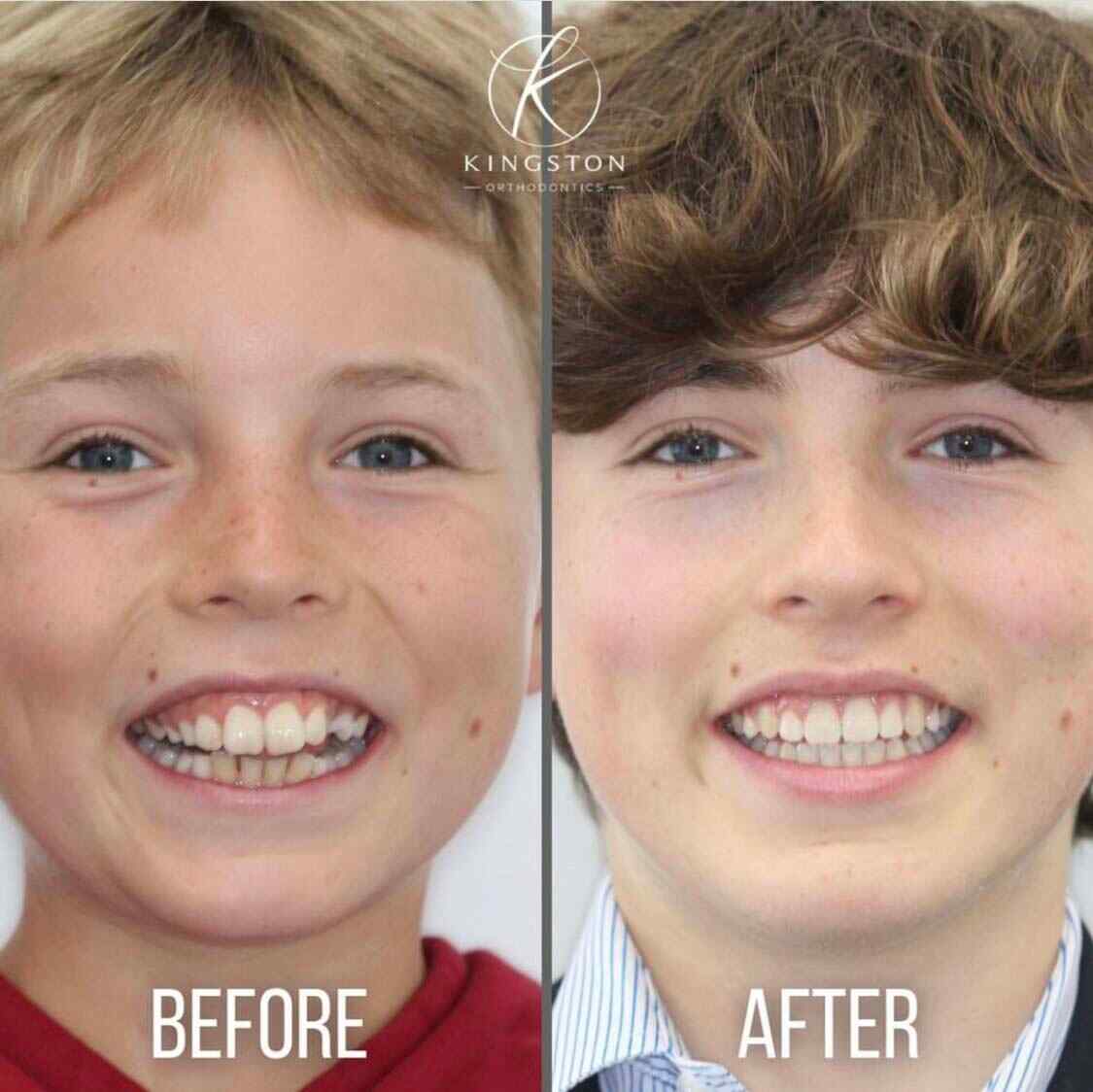
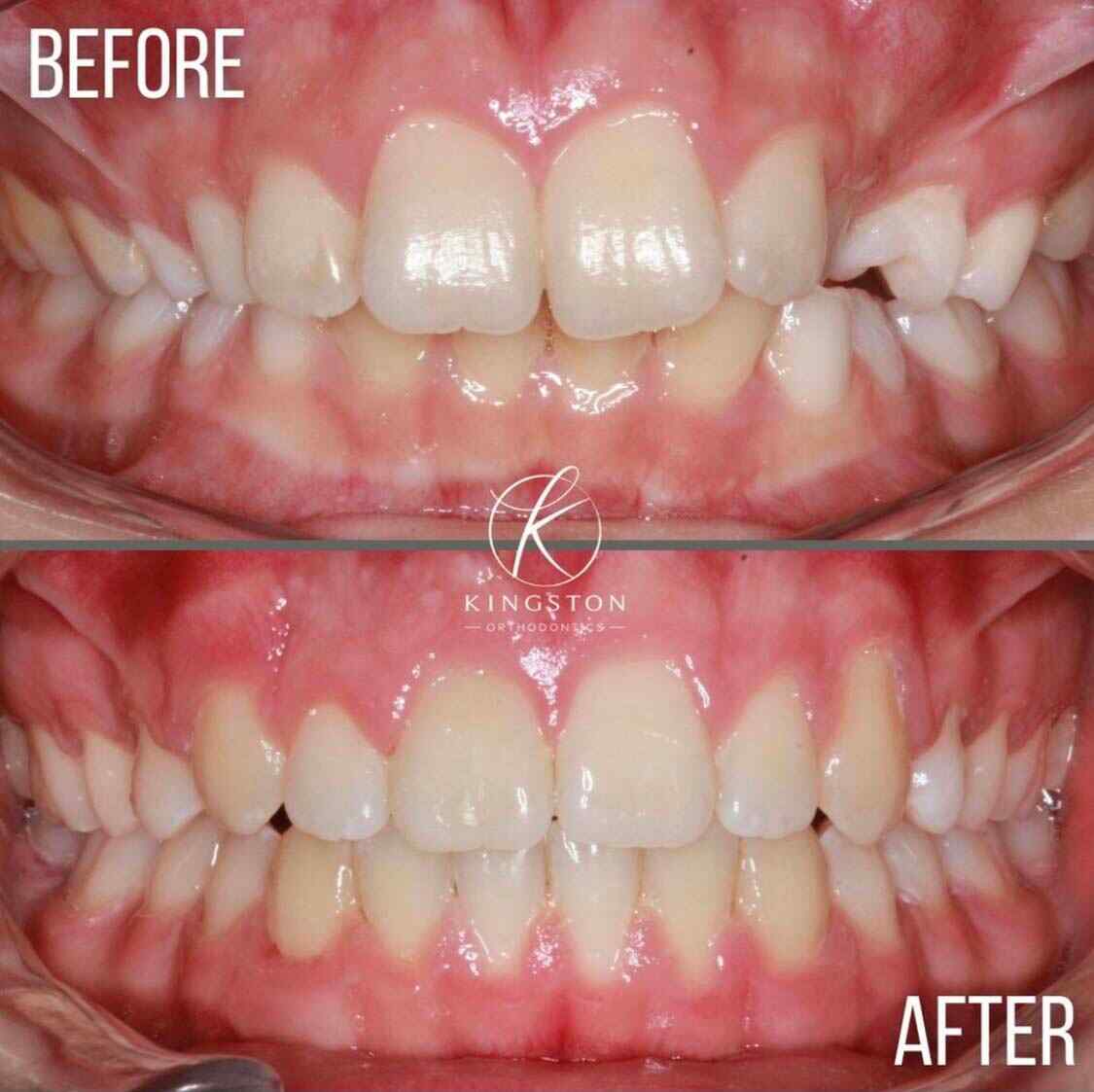
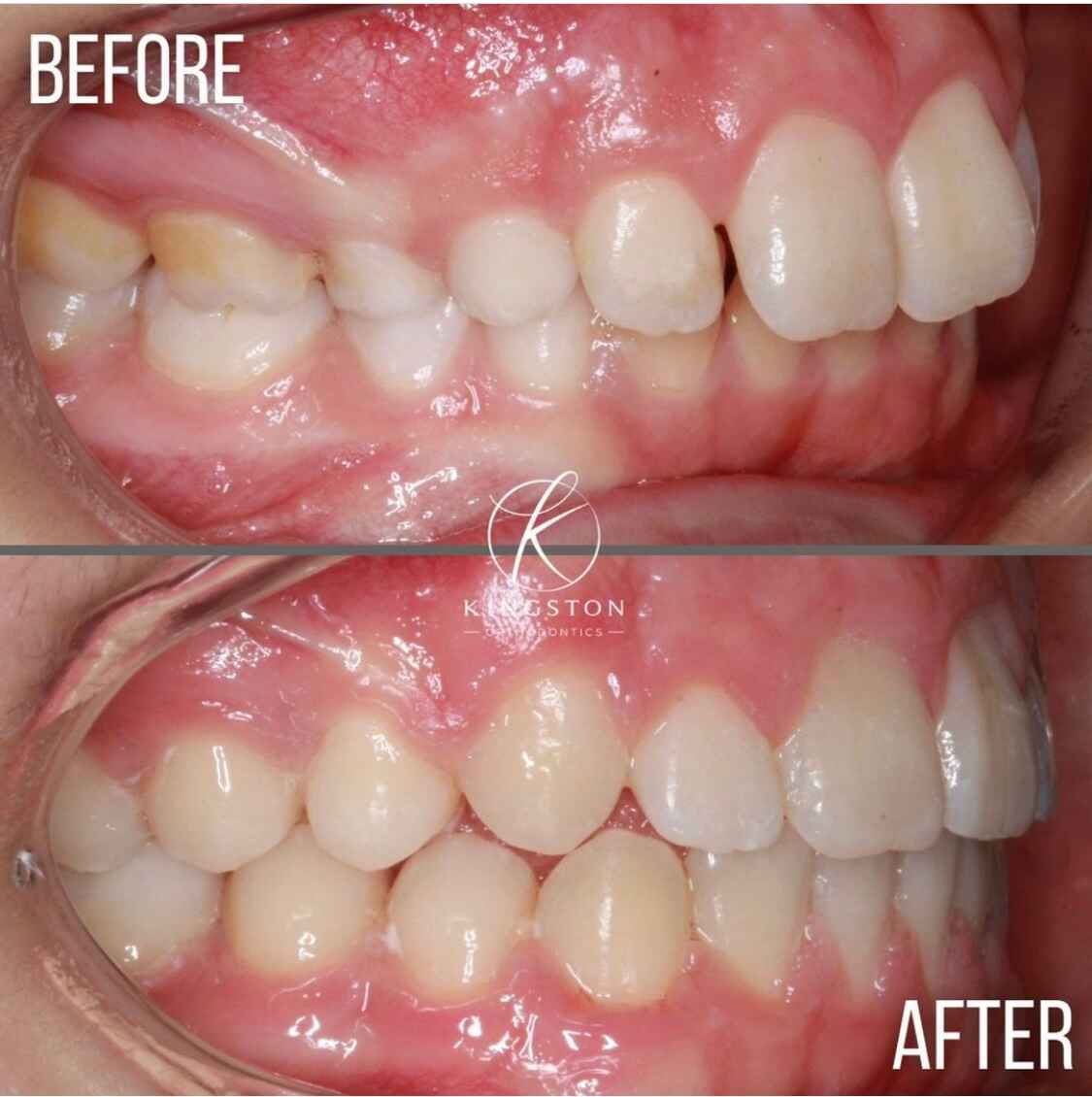
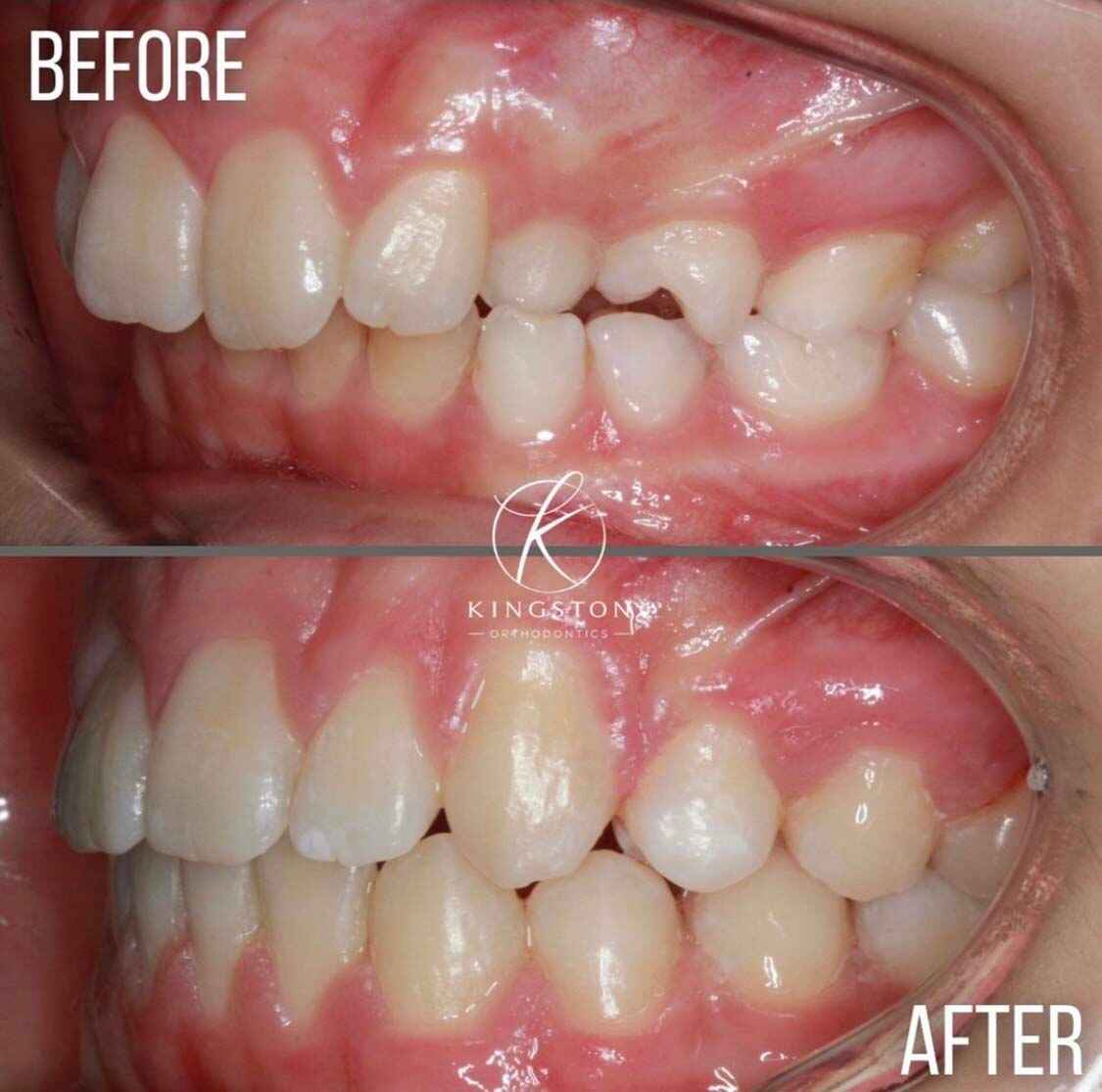
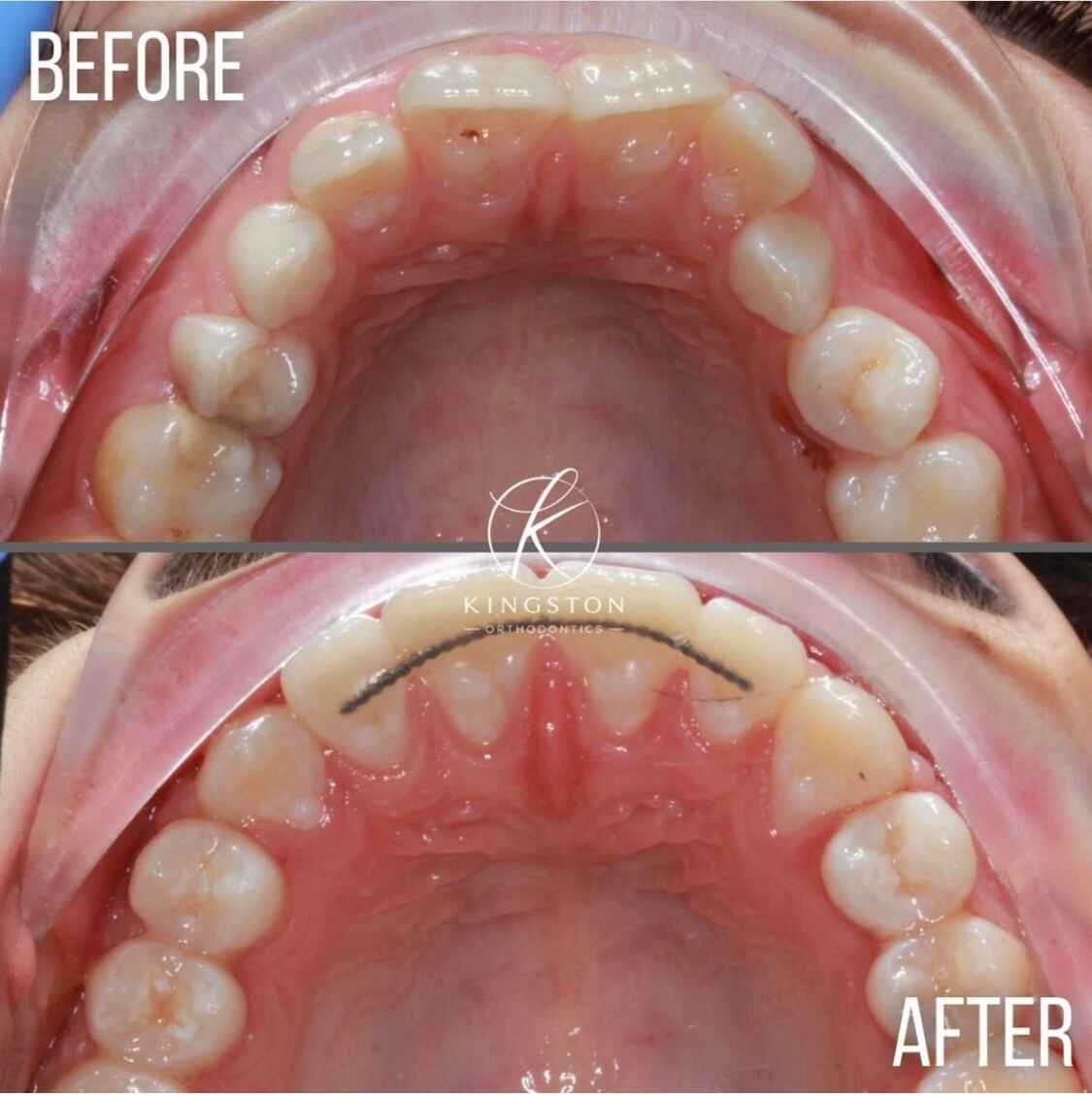
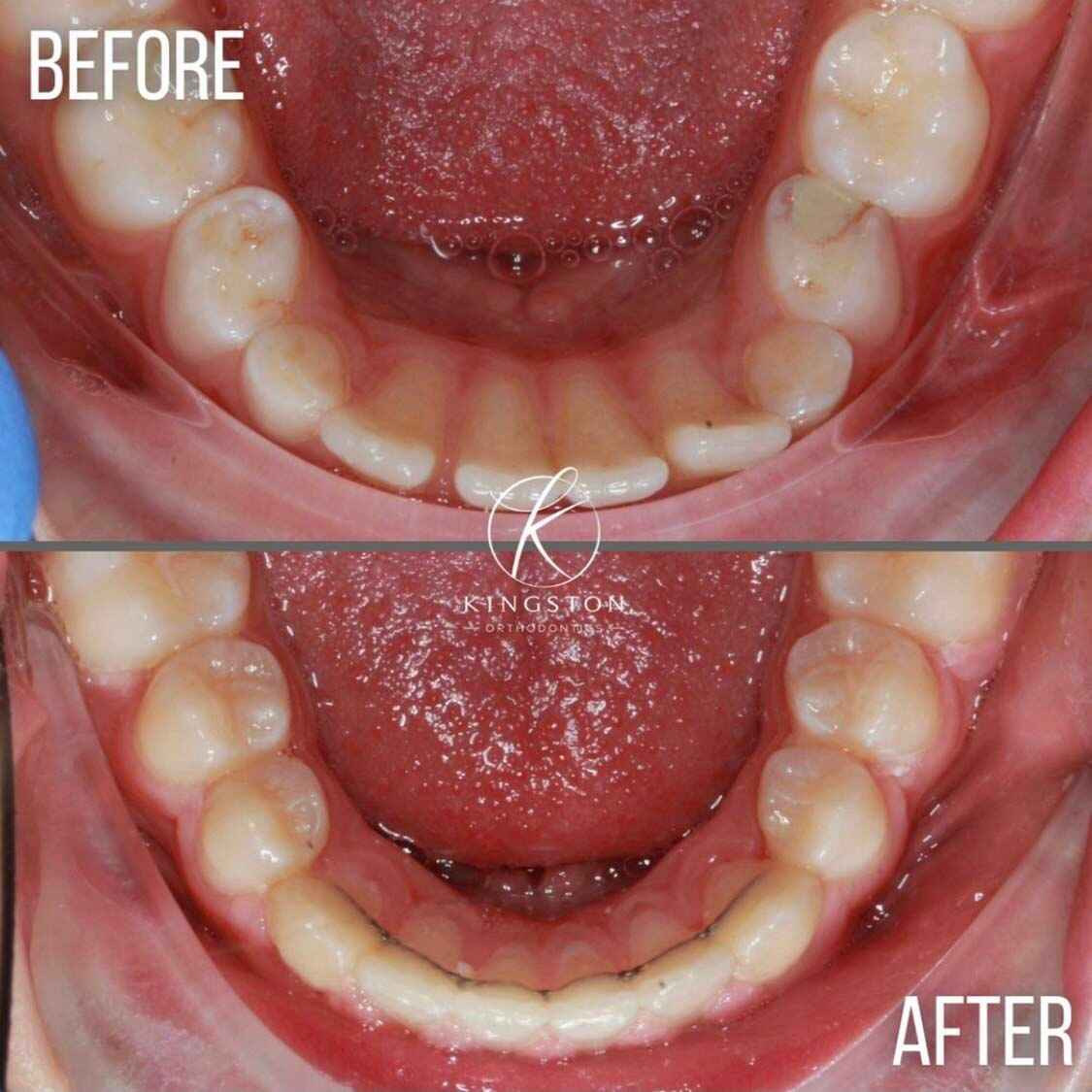
Baby and adult teeth can be crooked as they erupt into the mouth or gradually become more crooked as further adult teeth grow through. Baby teeth may come in crooked because they are too small to occupy their allocated gum space. Habits like sucking on the thumb or a pacifier can make baby teeth crooked. Genetics can also make the teeth crooked.
IIn some cases, if the baby teeth are crowded, the permanent teeth may also come in crowded. However, if a baby tooth falls out before its ideal time then the permanent teeth may come through out of line.
Our modern diet consists mostly of soft, processed foods requiring less chewing than our early ancestors. This change in diet has changed our jaw-to-teeth size ratio and has resulted in crowded, misaligned and crooked teeth.
Myofunctional habits are repeated habits affecting the mouth's muscles, face and function. These habits include tongue thrusting, thumb sucking, breathing through the mouth and using bottles or pacifiers.
If both your parents or one of them have crooked or crowded teeth, your teeth may be misaligned or crooked. You can also inherit an underbite or overbite from your parents.
If you do not attend regular dental check-ups at least two times a year, you may have cavities or gum disease if your diet and brushing are poor. The loss of a decayed tooth can cause the surrounding teeth to move and become crowded.
If you hit your mouth or face against something hard, it may result in tooth loss in that area, causing one or several surrounding teeth to become crooked.
Crooked teeth may affect a person's quality of life and wellbeing. Crooked teeth can make some people feel self-conscious, preventing them from interacting with others and smiling. Health issues that may result from crooked teeth include:
Straightening your teeth is a decision only you can make. If your crooked teeth do not affect your quality of life, you may decide to leave your teeth as they are. Some teeth imperfections give a unique look, but if you feel self-conscious about your crooked teeth, you should consider having them straightened.
Several options are available if you want to straighten your teeth. Braces are a good option for children and adults, provided the teeth and gums are healthy. Braces are especially suitable for children because their bone tissues and gums are still growing and developing.
Treatment with braces can take 2 – 3 years, depending on the severity of the case and the type of braces.
The following are types of braces for straightening the teeth.
The orthodontist will fix metal braces by attaching brackets, a flexible wire and elastic bands to the teeth. Metal braces are suitable for people with complex misalignment. Some people may need to wear headgear at night during braces treatment.
Advancements in orthodontics have made metal braces more comfortable than in the past. The metal brackets and wires are also smaller, and you can choose different colours of rubber bands. The cost of metal braces is from £1500 - £3500, depending on your location, insurance plan and severity of the teeth misalignment.
Ceramic braces are like metal braces, but the brackets are ceramic, often combined with tooth-coloured or clear archwires, making them less noticeable. Ceramic braces move the teeth like metal braces but the elastics stain easily however these elastics are replaced at each visit.
They cost between £2000 - £5000, depending on your location, insurance coverage and severity of the case.
Iconix braces are fixed metal braces with a light gold coating making them a very subtle choice for children and adults alike. They work in exactly the same way at other fixed braces. The main advantage other than the subtle champagne gold colour, it that any elastic discolouration is not visible due to the colour of the brace.
Invisible braces such as Invisalign are discreet. They are suitable for teens and adults. Invisalign are custom-made, clear aligners that fit the teeth like a mouth guard. The clear aligners are removable. You will switch to a new set of clear aligners every 1-2 weeks until the treatment is complete, but Invisalign isn't a suitable treatment for some misalignments.
Invisible braces cost about £1500 - £5000, depending on insurance coverage, location, and the teeth misalignment severity.
Lingual braces are also known as invisible braces, as they are fitted behind the teeth, where the tongue rests. They work in a similar way to traditional braces.
Lingual braces are difficult to clean and are not suitable for some people. They cost about £3000 - £10,000. Lingual braces treatment may take longer, and you may take longer to get used to the braces.
The orthodontist and maxillofacial surgeon can also recommend orthognathic surgery, which involves realigning the jaw. This surgery may be necessary if your crooked teeth have affected your ability to speak or chew properly.
Your dental insurance, location and the extent of work needed will determine the cost of your teeth straightening surgery.
Your dentist may refer an orthodontist after examining your bite, jaw and teeth. The orthodontist may perform further teeth exams, including checking if you have a popping sound when closing or opening your mouth and any physical discomfort when chewing.
The orthodontist will also perform x-rays of your mouth. If wearing braces is necessary, the orthodontist will take your teeth impressions and schedule another appointment to fit the braces.
Our orthodontists at Kingston Orthodontist will offer you the most suitable treatment to straighten crooked teeth following a comprehensive dental exam. Contact us at 0203 002 2501 or [email protected] to schedule an appointment with one of our orthodontists.

Spread the cost of any treatment
We are here to help you achieve the perfect – and affordable – smile so please talk to us about our popular interest-free payment plans. Spread the cost and relax – secure in the knowledge that your treatment will take place on time and on budget.